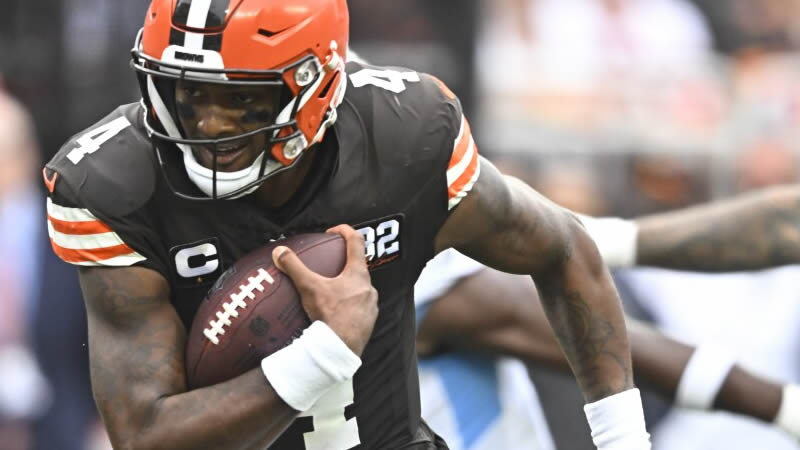Three games into the NFL season, the Cleveland Browns’ offense is in shambles. Ranking 31st in both yards gained and points scored, the team finds itself with a disappointing 1-2 record after an embarrassing defeat to the New York Giants. At the center of this offensive collapse is quarterback Deshaun Watson, who has been under intense scrutiny for his underwhelming performance.
While many are calling for changes, including the suggestion of utilizing Watson’s mobility with more designed run plays, the quarterback has made his stance clear. “I’m a quarterback, not a running back,” Watson declared on Wednesday, rejecting the idea of taking on more designed runs. He expressed his reluctance to take additional hits, prioritizing his role as a traditional passer.
Unfortunately for the Browns, Watson’s performance as a passer has been anything but stellar. Among NFL starting quarterbacks, Watson ranks near the bottom in several key metrics. He sits last in passing success rate and is only slightly ahead of Bryce Young in yards per pass attempt, averaging a dismal 4.8 yards. His QBR (22.5) is similarly abysmal, while he also finds himself among the worst in completion percentage, passer rating, and sacks taken.
Deshaun Watson was once known for his rushing ability, particularly during his time at Clemson, where he amassed 1,515 yards on designed runs. However, his designed runs have sharply declined since entering the NFL. In his time with the Houston Texans and now the Browns, Watson has never surpassed 145 rushing yards on designed plays in a single season. So far this year, he has only managed 11 yards from designed runs, with the majority of his 74 rushing yards coming from scrambles.
Designed runs, once a significant part of his game, have become rare in today’s NFL, even as mobile quarterbacks are more widely embraced. Only two quarterbacks—Lamar Jackson and Malik Willis—have gained more than 50 yards from designed runs this season. Still, some wonder if bringing that aspect back into Watson’s game could help the Browns’ struggling offense.
The bigger question, however, revolves around the hefty $230 million contract the Browns handed to Watson, which has become a source of frustration for many fans and analysts. Some argue that his massive guaranteed deal is the root of the team’s problems, as it leaves little room for change. Calls for backup quarterback Jameis Winston to replace Watson are growing louder, but with a fully guaranteed contract, Watson has little incentive to adapt.
The Browns face a critical decision—whether to ride out Watson’s struggles or explore other options. For now, the team’s hopes rest on Watson finding his rhythm, but with the season off to a shaky start, the pressure is mounting in Cleveland.


